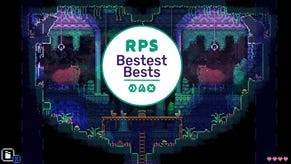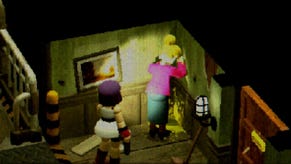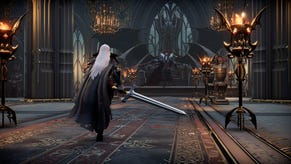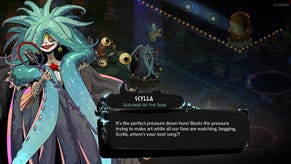Wot I Think: Watch Dogs 2
My crime is that of curiosity
We've already looked at Watch Dogs 2's [official site] multiplayer, which is seamlessly stitched onto the game's open world singleplayer shenanigans, and I've written about my first few hours with the game. Now, having worked my way through the story missions and as much of the surrounding city as possible, I'm here to tell you wot I think of Ubisoft's latest hack 'em up as a whole.
San Francisco is a warzone. Watch Dogs 2 lets you bring the conflict to the surface using military hardware to assault corporations and police checkpoints, but even if you make every effort to leave the guns to one side, the war is raging all around you. It's in every packet of data transmitted, in the divisions of race and class, and in the shadow that Silicon Valley casts over the city.
When Ubisoft announced that the sequel to the underwhelming Watch Dogs would use San Francisco as its setting, any excitement about the possibility of recreating Bullitt's car chase was tempered by thoughts of how a game about hacktivism might engage (or not) with the tech industry's presence in the Bay Area. Some of the richest companies and individuals in the world, often talking about the power of technology and new media to improve lives, while neighbourhoods in their own cities deteriorate and divide.
The sandbox environment of open world games is, as the word suggests, a playground of sorts. One of Watch Dogs 2's greatest achievements is to make a playground of San Francisco without applying DayGlo paint to every crack, or removing every needle and shard of glass from the sand. It's a game at its best when the DedSec buddies at its heart are as much pranksters as code warriors, taking down the high and mighty like Robin Hoodie in skinny jeans. The early story missions are light-hearted and fun, but that attitude comes from the protagonists rather than from the setting, and for a few hours at least Watch Dogs 2 manages to incorporate a story of striking back against the one percent without compromising its sense of fun.
It's a tricky balancing act and when things become more grim and the stakes rise, the story itself and the characters at its heart do crumble under the pressure. When you're manipulating billionaires with fake phonecalls and siphoning money from their accounts to charities, or stealing cars and movie scripts from big, dumb film productions, DeadSec are a good crew to hang out with. Later, bad things happen and the game never quite recovers – the writing works better with comedy and a lightness of touch than when it's grappling with Drama, and the solution to Drama, eventually, is to throw grenade launchers at it.
That the game moves toward missions of obligatory carnage is a shame because the challenge and the pleasure is in use of hacks and gadgets to infiltrate rather than in use of brute force, but the escalation of violence highlights an issue that is there from the game's opening minutes. Simply put, for all that they have done well, Ubisoft Montreal haven't found a way to move far enough from the GTA formula. The themes, characters and tools of Watch Dogs 2 aren't a natural fit for mass murder and consequence-free killings, but for all that the game captures something of the essence of San Francisco (and its beauty; it's a wonderful place just to spend time in, seeing sights and taking photos), the city is like an Etch-a-Sketch. You cover it with tiremarks, bullet holes and bodies, and then, once you're a couple of blocks away, the streets are wiped clean ready to be written again.
And so, when a cutscene contains actual consequences it's hard not to feel at least one-step removed from what's happening on-screen. At one point, I decided it might be fun to break into a heavily guarded area by luring the security folks to a truck in the carpark and then hacking it to go all Maximum Overdrive, squashing all of the guards against a wall. It was fun, particularly when the truck's first victim panicked when the headlights came on, capturing him in a pool of light, gun in hand. He shouted in alarm as the driverless juggernaut grumbled into action and smeared him across the wall.
Shortly afterwards, a mission had me hunting a serial killer who was almost certainly less dangerous and responsible for far fewer deaths than Marcus, the lead character of the game. You might be able to ignore the disconnect between plot and action, playing Marcus as an amoral agent of chaos, but I felt myself growing increasingly irritated and detached as I moved through the story. I much prefer the DeadSec pals than any of the GTA V cast, and the writing and performances do some strong groundwork, but the main missions feel like episodes in a TV show that never quite found its identity in the writers' room. One episode introduces an element of tragedy, but the main effect is to cut short one of the most interesting conversations and voices in the game.
Where Watch Dogs 2 manages to break the open world, driving and shooting mould, it's sometimes brilliant. The multiplayer, as Brendan has already reported, is equal parts smart and stodgy, and the actual driving and hacking is a lot of fun throughout. The emphasis on stealth can be frustrating, given the AI's tendency to switch from unaware to high alert in an instant. Make one mistake and you're often facing down an entire army of security guards, gangsters or cops, and from that point you're likely to be forced into a killing spree to survive.
It's a curious game. Beautifully crafted and occasionally bold in its satire and character-building, it eventually lacks the courage of its convictions. Somewhere in Watch Dogs 2, there is a game that is the antithesis of GTA, a game that draws meaning from its city rather than simply using it as a backdrop for consequence-free crime capers and random assaults and high speed chases. That game never quite emerges though and instead, we're left with an estranged sibling of GTA, and as soon as they get a few drinks down them, they both have the same ideas – no situation or problem is so complex or big that you can't wave a gun at it.
The hacking skills and basic manipulation of NPCs and environment aren't enough to fill the toolset or the gaps between the more inventive missions. And where there is a gap, random acts of violence tend to fill it. That's my choice, as a player, but it's a choice I make because the alternatives don't hold up. Yes, I can make my drone harass dogs in the park and that's a laugh for a while, as is picking on members of the public because I decide they're pricks based on one intercepted text conversation, but the world isn't reactive enough to make those pursuits worthwhile.
Some of my favourite hours with the game involved just watching the NPCs go about their business, but the most interesting way to insert yourself into that business usually involves a speeding car, even though it can be fun to make fake phonecalls or other nastier hack-based interruptions to the daily routine. At first I was roleplaying Marcus, stopping at traffic lights, trying to ensure I did as little harm as possible, and occasionally stopping to observe the lives of the people around me.
However, as time went on, that wasn't enough. It's telling that the skills you acquire as you level up are all designed to cause chaos and pain. Sure, you might be able to save a life by taking control of a car whose driver is behaving recklessly, but that's extremely unlikely. The more powerful you become, the more capable of tearing up the city you are. While Marcus might do what's right, or try to, during the scripted missions, it's possible to idly steal from peoples' bank accounts as you drive around the city. And then you can steer onto the pavement and plough through pedestrians.
Long before I finished the story, the warm glow of those opening hours had faded, and nothing really mattered. I was still having fun, on occasion, but something strange had happened. In exploring the possibilities of a GTA-like that didn't encourage violence at every turn, Watch Dogs 2 does more to highlight the limitations of the sub-genre than even the weakest entry in Rockstar's series. For all of its creative solutions and ideals, Watch Dogs 2 can't help but see California as an open carry state, and while I've enjoyed portions of it enormously, it doesn't go far enough in stamping its own identity on what is, eventually, another city of crime, cars and firearms.
Watch Dogs 2 is available now, via Steam and UPlay, for Windows.













